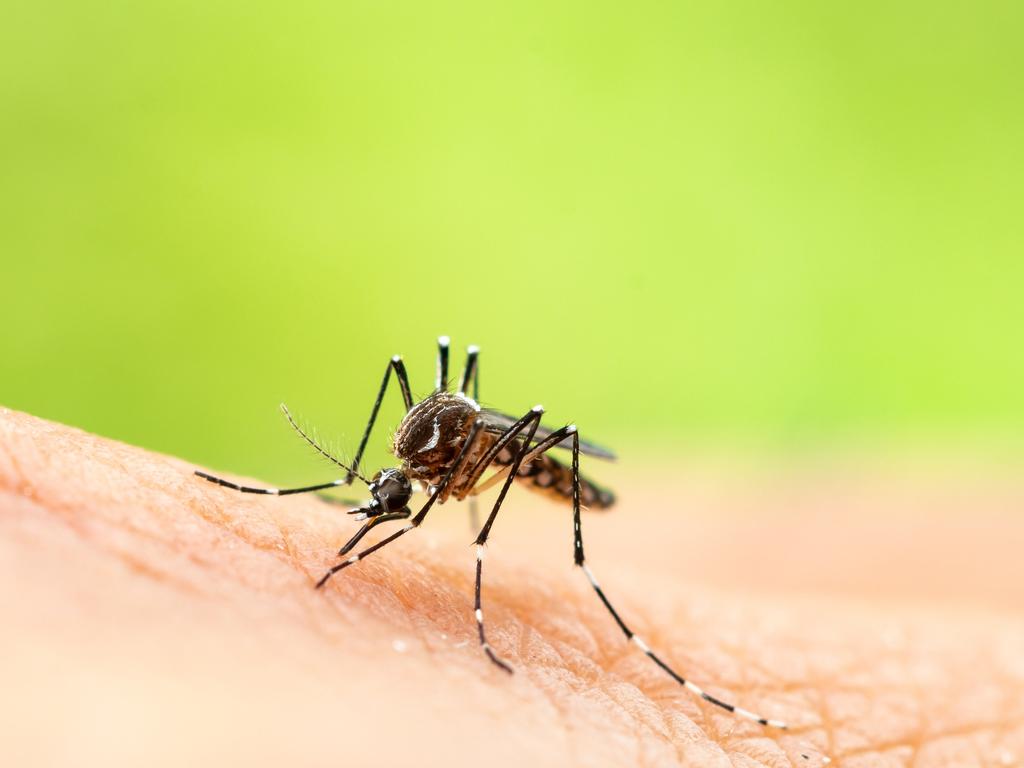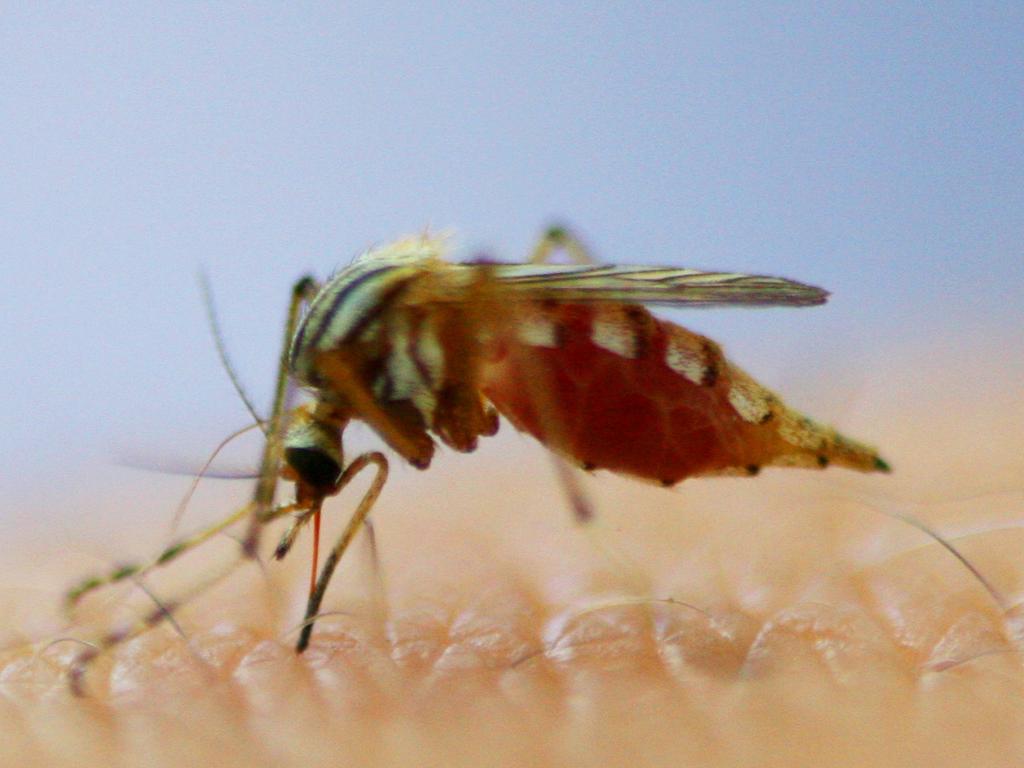‘Alarming’: Mosquito virus warning after man dies from Japanese encephalitis
Australians have been urged to protect themselves against mosquito bites as a deadly virus spreads across the country.
Australians are being urged to protect themselves against mosquito bites as a rare disease spreads across the country.
NSW Health has confirmed a man in his 70s from Griffith in the state’s southwest has died from Japanese encephalitis.
The man died on February 13 and the disease was confirmed following a post-mortem.
The confirmation comes after another man in Victoria became the first Australian confirmed to have died from the outbreak.
Others are still being treated for the disease, which is spread by mosquitoes.
Deputy Chief Medical Officer Sonya Bennett said authorities became aware of the outbreak just over a week ago, after the virus was detected in “a large number” of piggeries.
“We’ve not seen Japanese encephalitis virus in piggeries on the Australian mainland before,” she told the ABC on Wednesday.
Dr Bennett said similar outbreaks had been seen in the Torres Strait, where there were vaccination programs in place.
“But not this far south in Australia, so that was certainly alarming,” she said.
“This virus is transmitted to humans through the bite of an infected mosquito. But the main way that mosquito gets infected is when it bites a pig with the disease.”
There are now at least nine human cases of the mosquito-borne virus in Australia.
Nine cases have been recorded across Queensland, NSW and Victoria.
South Australia has also recorded several cases.
“There’s a number of other cases in humans under investigation,” Dr Bennett said.
“The testing for this is not quite straightforward, and we do expect a few more to be confirmed over the coming days.”
Three people with the virus are being treated in hospital.
Dr Bennett stressed the virus was not transmitted from human to human, as is the case with Covid-19, so people with the virus are not a risk to others.
But she urged people to protect themselves against mosquito bites.
We’ve heard a lot about the flooding, and people should certainly be protecting themselves against mosquitoes by wearing long, loose fitting clothing, using mosquito repellent and reapplying it when necessary, and other mosquito repellent devices inside and outside the home,” Dr Bennett said.
“And of course, if you do become unwell, seek medical attention.”
Dr Bennett said the mosquito-borne disease was most likely to affect communities around the Murray River.
“It may well be that those communities will be recommended to have vaccination,” she said.
There are now three known cases of the virus in NSW residents, including a man and child who being cared for in Victoria.
Several more people in NSW are undergoing further testing and more cases are expected to be confirmed over the coming days and weeks.
On Wednesday, authorities warned South Australians to avoid getting bitten by mosquitoes after the state confirmed its first detection of Japanese encephalitis.
Three cases have so far been identified in SA.
A recent investigation into 10 people who had acute encephalitis over the past month revealed four of those cases were Japanese encephalitis.
All 10 people needed to be hospitalised, with seven of them still there, and one person died.
Parents and caregivers are warned to be particularly cautious, as children aged under five have a higher risk of developing encephalitis if infected with the virus.

The Health Department’s Chris Lease said it was more important than ever to take extra precautions against being bitten by the bug.
“As we head into the long weekend, and with Easter right around the corner, it’s an incredibly timely reminder to take precautions against mosquito bites,” he said.
“People planning activities around the River Murray are warned to be especially vigilant, particularly between dusk and dawn when mosquitoes are most active.”
Those who contract flaviviruses, like Japanese encephalitis, Kokobera virus, West Nile virus, and Murray Valley encephalitis virus are mostly asymptomatic or have a mild fever, but for some, it's far more serious and develop encephalitis that could be fatal or cause lifelong neurological damage.
Confusion or having headaches, neck stiffness, tremors, drowsiness and seizures are some possible symptoms.

While some vaccines are available, Dr Lease said the best way to avoid getting infected was to avoid being bitten altogether.
He encouraged residents to apply an insect repellent containing DEET or picaridin if outdoors and to try to stop the insects from coming indoors.
Using mosquito coils and covering up with long loose fitting clothing was also recommended.
“Simple changes around the home can help to reduce and eliminate mosquitoes, such as cleaning up water around the house to prevent breeding and installing mosquito-proof mesh on doors and windows,” Dr Lease said.
“It is important that people remain vigilant in protecting themselves against mosquito bites, particularly during periods of warmer weather when mosquito activity is high.”



